OCTOBER 2024 | VOLUME 33, NUMBER 8
Walk with the Austin Bar in Suicide Prevention Fundraiser
The Lawyer Well-Being Committee of the Austin Bar Association invites you to participate in a fundraiser for suicide awareness and prevention.
The fundraiser is a walk that will take place on Oct. 26 at 10 a.m., starting at the Texas Capitol. These “Out of the Darkness” walks are hosted by the American Foundation for Suicide Prevention (AFSP), which has chapters throughout the country. More than 400 walks to increase suicide awareness and awareness of prevention resources will take place in 2024.
The Austin Bar team name is Honoring Trevor Taylor and Aspen Dunaway. Both were Austin Bar members. Taylor died by suicide in 2017. Dunaway died by suicide in 2023.
If you would like to join our team, you can by making an account on: supporting.afsp.org/index.cfm?fuseaction=donorDrive.event&eventID=10245. During signup, you will be asked if you would like to join a team. You can search for either “Austin Bar” or “Honoring Trevor Taylor and Aspen Dunaway” to join.
You can also donate directly, either to the team’s page or to the Austin Bar’s participant page. Either way, the money will be aggregated to reach our goal of raising $1,000 for AFSP.
The Austin Walk has an overall

fundraising goal of $225,000. As of Sept. 19, more than $74,000 had been raised.
According to documents on AFSP’s website:1
• A donation of $10 allows AFSP to distribute wristbands to spread mental health awareness;
• A donation of $50 provides suicide prevention education materials to 25 people;
• A donation of $100 takes the AFSP-produced film “It’s Real: Teens and Mental Health” to a local high school;
• A donation of $250 recruits and trains field advocates on public policy priorities;
• A donation of $500 trains a new “Survivor of Suicide Loss” support-group facilitator;
• A donation of $1,000 provides funds for youth suicide prevention outreach and programming;
• A donation of $2,000 hosts a research event to share how AFSP-funded research helps prevent suicide;
• A donation of $5,000 institutes an Interactive Screening Program (ISP) at a school or workplace. An ISP allows individuals to complete an anonymous mental health screening to be connected with mental health resources.2
AFSP has a four-star, or 100-percent positive reputation, on Charity Navigator. Additionally, Charity Watch, an independent watchdog, grades AFSP at an “A” and, based on tax filings, calculated that 80 percent of AFSP’s expenses are spent on program services, the re-
maining 20 percent on administrative costs.
And after you get done at the Community Walk, join the Austin Bar and the Mother Attorney Mentoring Association (MAMAs) for the Pro Bono Fall Festival! This family-friendly event will have crafts, games, a dunk tank, and a Halloween costume contest. All proceeds from the festival will benefit Volunteer Legal Services of Central Texas. To register, visit austinbar. org. AL
ENDNOTES
1 https://donordrivecontent.com/afsp/ images/$cms$/104/18272.png. 2 https://afsp.org/interactive-screening-program/.
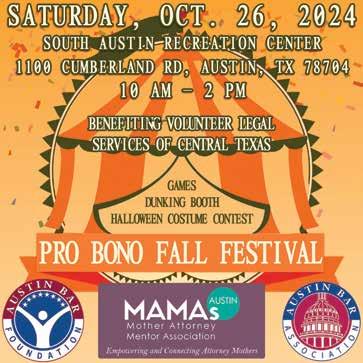
Trusted by 50,000 law firms, LawPay is a simple, secure solution that allows you to easily accept credit and eCheck payments online, in person, or through your favorite practice management tools.





AU ST INL AW Y ER
EMAIL billy@austinbar.org MAIL Austin Bar Association 712 W. 16th Street Austin, TX 78701
Austin Bar app available for iPhone and Android.

austinbar.org
NEWS & ANNOUNCEMENTS
Join Us at the Pro Bono Fall Festival! The Austin Bar and Mother Attorney Mentor Association (MAMAs) are jointly hosting the Pro Bono Fall Festival to support Volunteer Legal Services of Central Texas! This family friendly event will feature face painting, crafts, and a Halloween costume contest! Join us Oct. 26 from 10 a.m. to 2 p.m. at South Austin Recreation Center, 1100 Cumberland Rd.
UPCOMING EVENTS
Oct. 25 Real Estate Section CLE: Land Development Seminar 8 a.m. – 4:15 p.m. Fareground Conference Room 111 Congress Ave. Register at austinbar.org.


instagram.com/theaustinbar
https://www.linkedin.com/ company/austin-barassociation
vimeo.com/austinbar
You wanted a Texas legal malpractice insurance company that’s loyal to its customers. Heck, we’ve been doing that since 1979. It’s in our DNA. You wanted a provider that was committed to building relationships with our members to keep them happy, feeling respected and customers for life. We listened.
ADDICTION & MENTAL HEALTH RESOURCES
24-Hour Suicide & Crisis Lifeline - 988 - call or text | Live chat: SuicidePreventionLifeline.org
Texas Lawyers’ Assistance Program (TLAP) - 1-800-343-8527
TLAP is a 24-hour confidential crisis counseling and referral program to help lawyers, law students, and judges with substance use and mental health issues.
Justice Mack Kidd Fund
The Austin Bar Foundation administers the Justice Mack Kidd Fund, which can provide financial assistance to individuals seeking treatment for depression or similar illnesses. Visit austinbar.org/?pg=justice-mack-kidd-fund to learn more.
Personal Crisis Assistance Program (PCAP)
The Austin Young Lawyers Association Foundation provides grants and/or peer support for individuals suffering from a personal crisis.
Contact Debbie Kelly: 512-472-0279 x 105
Sheeran-Crowley Trust
Administered through TLAP, the trust provides financial help to Texas attorneys, judges, and law students who need treatment for substance use, depression, and other mental health issues. Visit sheerancrowley. org to learn more.
Alcohol & Drug Abuse
Austin Drug & Alcohol Abuse Program - 512-454-8180
Alcoholics Anonymous - 512-444-0071
Cocaine Anonymous - 512-479-9327
Narcotics Anonymous Counseling - 512-480-0004
Psychiatric Emergencies
Emergency Screening in a Psychiatric Crisis 24/7 - 512-472-4357
Samaritan Center (provides professional counseling services on a sliding scale) - 512-451-7337
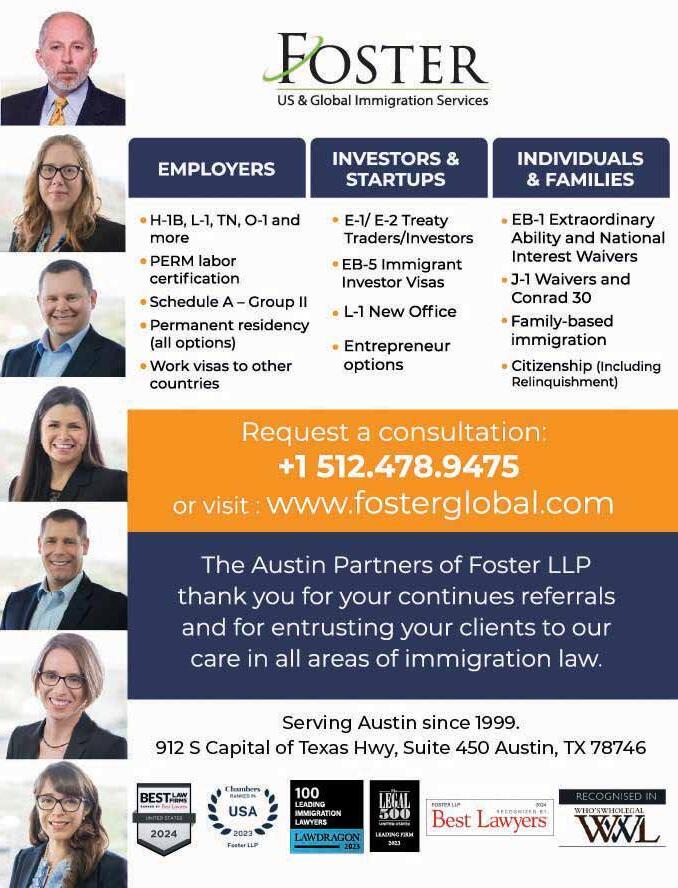
AUST INL AW Y ER AL AL
OFFICIAL PUBLICATION OF THE AUSTIN BAR ASSOCIATION
AUSTIN BAR ASSOCIATION
Mary-Ellen King President
Maitreya Tomlinson President-Elect
Judge Maya Guerra Gamble Secretary
Rob Frazer Treasurer
Justice Chari Kelly Immediate Past President
AUSTIN YOUNG LAWYERS ASSOCIATION
Emily Morris President
Jenna Malsbary President-Elect
Gracie Wood Shepherd Treasurer
Lena Proft Secretary
Sarah Harp Immediate Past President
Austin Lawyer
©2024 Austin Bar Association; Austin Young Lawyers Association
EXECUTIVE OFFICES
712 W. 16th Street
Austin, TX 78701
Email: austinbar@austinbar.org
Website: austinbar.org
Ph: 512.472.0279
DeLaine Ward Executive Director
Debbie Kelly Associate Executive Director
Roslyn Dubberstein Assistant Editor
Samantha McCoy Assistant Editor
Abigail Ventress Assistant Editor
Billy Huntsman Managing Editor
Austin Lawyer (ISSN #10710353) is published monthly, except for July/August and December/January, at the annual rate of $10 membership dues by the Austin Bar Association and the Austin Young Lawyers Association, 712 W. 16th Street, Austin, TX 78701. Periodicals Postage Paid at Austin, Texas. POSTMASTER: Send address changes to Austin Lawyer, 712 W. 16th Street, Austin, TX 78701.
Austin Lawyer is an award-winning newsletter published 10 times a year for members of the Austin Bar Association. Its focus is on Austin Bar activities, policies, and decisions of the Austin Bar board of directors; legislation affecting Austin attorneys; and other issues impacting lawyers and the legal professionals. It also includes information on decisions from the U.S. District Court for the Western District of Texas and the Texas Third Court of Appeals; CLE opportunities; members’ and committees’ accomplishments; and various community and association activities.
The views, opinions, and content expressed in this publication are those of the author(s) or advertiser(s) and do not necessarily reflect the views or opinions of the Austin Bar Association membership, Austin Bar Association board of directors, or Austin Bar Association staff. As a matter of policy, the Austin Bar Association does not endorse any products, services, or programs, and any advertisement in this publication should not be construed as such an endorsement.
Contributions to Austin Lawyer are welcome, but the right is reserved to select and edit materials to be published. Please send all correspondence to the address listed above. For editorial guidelines, visit austinbar.org in the “About Us” tab.
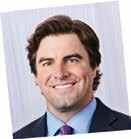
















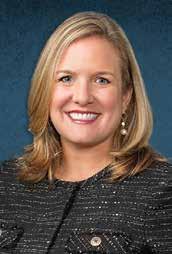
My name is Mary-Ellen King. I am the current president of the Austin Bar Association. This is my story.
I grew up in church, a star athlete, always a leader—secretary of my high school’s student-government association, sorority officer, involved in campus politics, president of alum clubs, Rotary president, president of the Austin Bar, and leadership in various foundations, to name a few. I am type-A and task-oriented—like most lawyers, a dutiful perfectionist.
In 2007, while in law school at Southern Methodist University, I met Rick. He was handsome, a brilliant lawyer, and an overachiever— even more than me. Way smarter than me. A charming former Fifth Circuit law clerk and alum of an AmLaw 200 international law firm.
We married in 2009, and I gained three precious bonus children when they were 10, eight,
Why I’m Passionate About Attorney Wellness
BY MARY-ELLEN KING, LUCOSKY BROOKMAN LLP
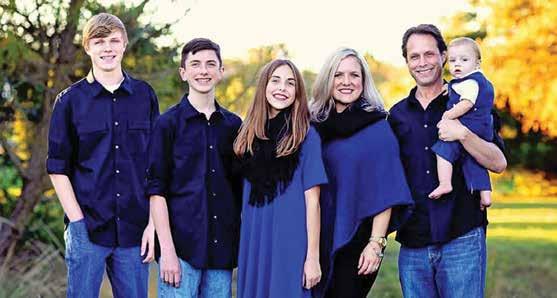
and six. The next five years were amazing. We started a very successful law firm together, were heavily involved in our local community, I had brilliant engaging stepchildren, and we decided to have a child together. From the outside looking in, we were a picture-perfect family.
After trying many years and with a huge setback and emergency surgery in 2013, I became pregnant in 2014. I had noticed by this time that something was not right. I stayed up in the middle of the night, unable to sleep, and

Googling things, trying to make sense of it all. One night at three a.m., I finally pieced it together: I was living with an alcoholic, a very high-functioning alcoholic, and it was getting worse by the day.
I had my beautiful son, Wyatt, in January 2015. At that point, when my life should have been full of joy, it was spiraling. I started attending Al-Anon recovery meetings, which are different from Alcoholics Anonymous meetings: Al-Anon is for family and friends affected by someone’s drinking.
During one of my Al-Anon meet-
ings, a quote hit me and stuck with me: “Trying to make someone else happy will ultimately make you full of anger and rage, especially when doing it to compensate for someone else’s addiction.”
That was me. I was miserable. I was angry and mad — that my life was falling apart, that the picture-perfect life I had painted for the world was an illusion. We were nothing more than a sandcastle being washed away by each wave.
As with many things, you’ll hear people say about addiction, “It runs in the family.” I was determined to

change the narrative of my family and adopted a second part of that phrase for my life: “This is where it runs out.”
When my life started crumbling around 10 years ago, I stopped everything but attending church and Al-Anon meetings. Most days, I would sit and cry during church and recovery meetings. I felt helpless.
I left Rotary, I left the sorority alum club that I loved, I left the law firm I started, I disengaged from community events, and I went to work on myself and overcoming the impact the disease had on me and my family. We were collateral damage of something completely out of our control, and it was devastating. My story is long, and the details are horrifying. I was 850 miles from my closest family and from my mom and dad, but I started to realize that I was not alone. There were days when I literally did not feel like getting out of bed. Days when I was not sure how to put the right foot in front of the left. My brain was foggy. My life was in shambles.
But now when I look back, I know something bigger than me was walking me through the storm, and I did not quit. That went on for five years. I finally filed for divorce in 2017, and it was finalized in April 2021. Divorcing someone you are no longer compatible with is hard. Divorcing someone you love so they can self-destruct is a feeling that I cannot put into words. “Sad” does not adequately describe the feelings I have.
In the end, I lost the picture-perfect family. But, through my faith
and Al-Anon, I became a better person, and I started to live again. I am still an active leader, but today I lead in quite a different way. I share my story, my struggles, and I am vulnerable and open about what we have been through and what we will continue to go through for the rest of our lives because of our encounter with addiction in our family. And, most days, I do it without a lot of worry or anxiety.
That was not always easy. When I am in the dark valleys in life, I worry: I worry about the future, I worry about tomorrow, I worry about everything. One of the lessons I learned over the last 10 years is that instead of worrying, I need to be grateful for what I have—even the simplest of things, like the sunshine, the flowers, the birds, this gorgeous city in which we live.
And it has transformed my life. It has taken me from a place of constant worry to a place of peace. And it allows me the opportunity to see daily gifts and to share with others. Instead of living a life of fear and worry, I now live a life of gratitude. I live life in the moment.
As Brené Brown says, “What we don’t need in the midst of our struggle is shame for being human.” And after being through what I have been through (and continue to endure), I have learned that showing others grace and love amid their struggles is how I can make the world a better place. People struggle. We are human. No matter the choices, no matter the place in life, everyone deserves grace—it can be transformative.

We now choose to find joy and gratitude in the small things of everyday life. There’s more good in this world than bad; you have to choose on which you focus.
In April 2023, my ex-husband, ex-law partner, and father of my eight-year-old son (at the time) was diagnosed with stage IV liver failure. He passed on Nov. 27, 2023, at the age of 55 from the disease of addiction. When that happened, our lives were shattered, but simultaneously we were at peace. What I came to realize is that through the personal work leading up to that moment, I was preparing for the inevitable. I learned how to have strength and peace in the face of extreme personal struggles and adversity. Those lessons carried me
and continue to carry me through very dark days. We now choose to find joy and gratitude in the small things of everyday life. There’s more good in this world than bad; you have to choose on which you focus.
If you find yourself facing similar struggles, I encourage you to visit the Austin Bar Association resource page: https://www.austinbar.org/?pg=stopthestigma
If you are looking for a local AlAnon meeting, you can find them here: https://al-anon.o srg/al-anonmeetings/find-an-al-anon-meeting/ AL

New Members
The Austin Bar welcomes the following new members:
Beatrice Anderson
Cayman Angelle
Londyn Beall
Elizabeth Cabrera
Jason Cairns
Diego Cantu
Anna Cash
Tristan Davantes
Liliana De la Pena
Mariam Farahmand
Duncan Farrish
Tate Francois
Kennedy McCormack
Ainsley Slusher












Alexis Stoker ON THE MOVE
Michael Ripp, Cindy Grossman, and Lauren Fitte have launched the law firm of of Ripp Grossman & Fitte LLP (“RGF”). RGF will provide personalized legal services in the areas of domestic and international estate, gift, and income tax planning and preparation, closely held business planning, insurance coverage analysis and procurement, and asset protection planning. While the launch of RGF begins a new chapter for this group of professionals—many of whom have practiced together for over 15 years—the RGF team is committed to providing the same high-quality counsel that their individual professionals are known and recognized for in their respective practice areas.
KUDOS
Congratulations to the following, who were among those named by Best Lawyers as “Lawyer of the Year” in their respective practice fields in and around Austin:
Ann M. Coffin
Administrative/Regulatory Law
Coffin is a founding partner of Coffin Renner, which specializes in the representation of electric, gas, and telecommunication utilities before regulatory agencies and the Texas courts.
Kelly J. Dwyer
Corporate Law
A partner at Dwyer-MurphyCalvert, Kelly has been a trusted adviser to businesses and individuals across various industries. His clients
include founders, executives, and investors in all stages of the lifecycle of a privately held business, from inception to liquidity.
Cliff Ernst
Banking and Finance
A partner at McGinnis Lochridge, Ernst’s clients range from start-up companies to large corporations in the fields of real estate and hospitality, professional services, technology, entertainment, oil, gas, and publishing, as well as nonprofits and governmental agencies.
Kelly Caperton Fischer
Collaborative Law: Family Law
Fischer is a partner at Goranson Bain Ausley. In addition to her recognition by Best Lawyers, for the past three years, she has received Austin Monthly’s Top Attorney award.
David Gonzalez
Criminal Defense: White-Collar
David is a partner at Sumpter & Gonzalez. He has practiced criminal law for 20 years and is the 2017 recipient of the Austin Bar’s Professionalism Award and the Federal Bar Association’s 2018 Advocate of the Year. He is especially versed in federal and state criminal cases involving mental health issues.
Christopher M. Gunter
Criminal Defense: General Practice
Christopher is a partner at Gunter, Bennett & Anthes. He is board-certified in criminal law, a member of the American College of Trial Lawyers, and is a former county and district attorney in Travis County.
Sherrard L. Hayes II
Employment Law: Management
Sherrard “Butch” has tried cases across the country and on three continents for more than three decades. Butch is a trial lawyer who has tried dozens of jury trials and arbitrations to verdict or award. He’s also successfully defended 10-figure bet-the-company cases and recovered, while representing business plaintiffs, as much as eight-figure payments for his clients.
Robert B. Neblett III
Eminent Domain & Condemnation Law
Robert is a partner in Jackson Walker’s Austin office and one of the preeminent condemnation lawyers in the state. He represents condemnors, such as public utilities, private entities, pipeline companies, railways, and others in counties across the state. He also has extensive litigation experience.
Emilio B. Nicolas
Copyright Law
A partner at Jackson Walker, Nicolas’ practice focuses on copyright, trademark, and media rights and involves litigation and transactional work, such as rights protection, enforcement, and licensing.
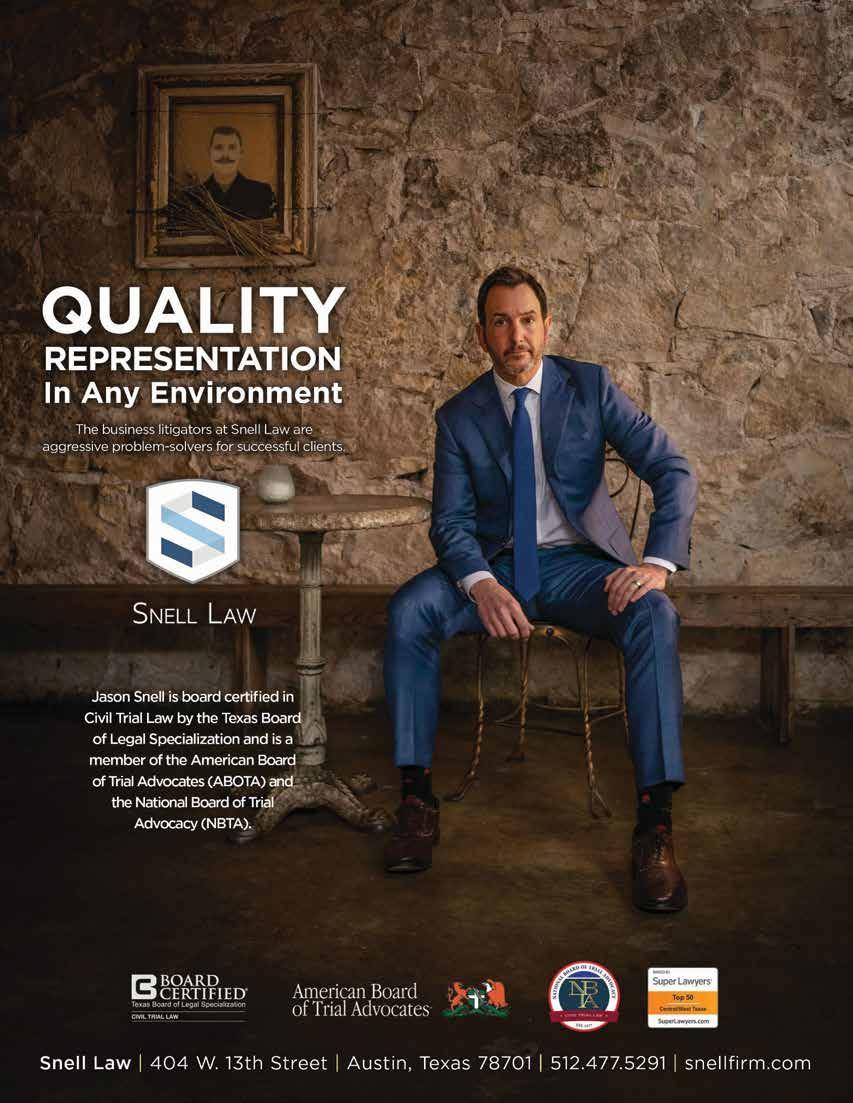

Paul Jacobs currently is an attorney and TLAP professional with the Texas Lawyers’ Assistance Program (TLAP), where he helps connect judges, lawyers, and law students with the mental health and addiction resources they need. In addition, Paul speaks publicly to increase awareness and destigmatize mental health and substance use disorders.
It is a myth that an individual seemingly functioning well at work could not also be an addict and suffering from severe emotional trauma. My own experience painted a picture of an individual who continued to maintain the façade of functionality at work despite the extent of my alcohol and drug use. I looked like a functional lawyer, but I was living a double life while hiding my pain. I was a medical malpractice attorney trying lawsuits while hiding my use and abuse of alcohol and drugs. I also saw the same or similar situation with many of my peers. Although they appeared to be functioning, like me they were also suffering from severe health issues, addictions, and even suicidal ideation. Sadly, some of my peers died because of their mental health or substance use disorders.
Studies indicate that 21 percent of all lawyers and more than 33 percent of lawyers under 30 years of age have a substance use disorder (SUD). The National Institute of Health defines five subtypes of alcohol dependence, and the functioning addict is one of the subtypes.1 The functioning addict makes up about a fifth of the total population of addicts. There are certain characteristics used to describe high-functioning addicts:
The Myth of the High-Functioning Lawyer Addict
BY PAUL JACOBS, TEXAS LAWYERS’ ASSISTANCE PROGRAM (TLAP)

1. High level of education;
2. Stable job;
3. Supportive family;
4. Most commonly of middle age; and
5. Family history of addiction.2
The American Society of Addiction Medicine (ASAM) defines addiction as a “treatable, chronic medical disease involving complex interactions among the brain circuits, genetics, the environment, and an individual’s life experiences.”3
Maintaining a life of active addiction while working in a high-pressure field, such as law, frequently translates to leading a double life. The functional addict may spend extensive amounts of time double-checking their work following a hangover, having to stay up long hours into the night sending out emails and documents, or going to great lengths to conceal their unhealthy behaviors. They may be using their intelligence, legal rationalization, and self-reliance skills to minimize and hide the consequences of addiction and deny their problem both to themselves and
others. People with addictions use substances or engage in behaviors that become compulsive, and they continue injurious behavior despite harmful consequences. The absence of legal problems is not a gauge for the severity of the addiction.
A functioning addict or alcoholic may keep up appearances for a long time, but the disease progresses. By maintaining the myth of a functional addict, we perpetuate the myth that addiction is a choice or character flaw. If one user can function and another cannot, then it must be a flaw specific to that one user who isn’t functional. But this is wholly inaccurate. Remember, drug addiction is a progressive disease. The longer a substance is used, the more severe the symptoms and side effects will become.
Whether you feel you may have a substance use problem or think someone else in your life may be struggling with a substance, it’s important to spot the signs of addiction before it progresses.
According to the Diagnostic and Statistical Manual of Mental Disor-
ders (DSM-5), some signs and symptoms of a substance use disorder (SUD) include:
1. Drinking or using more than you originally intended;
2. Being unable to cut down your substance intake;
3. Spending a lot of time trying to obtain, use, and recover from the effects of a substance;
4. Cravings, or feeling strong urges to use;
5. Being unable to meet obligations at home, school, or work due to substance use;
6. Continuing to use a substance despite ongoing social or interpersonal problems caused by substance use;
7. Giving up activities you once enjoyed because of substance use;
8. Using substance(s) in situations where it is hazardous to do so (e.g., driving or operating machinery);
9. Continuing to use despite having physical or mental health issues related to your use;
10. Experiencing symptoms of withdrawal; and
11. Developing a tolerance.
A person may have an SUD if they meet at least two of the above listed criteria within a 12-month period.4
Addiction doesn’t go away on its own. A highly functioning addict may feel they have everything under control but are living a false and potentially dangerous life. A key indicator of addiction is continuing to use drugs and alcohol even though it’s causing negative consequences in your life and/or to your mental and physical health. There’s no way to escape the dangerous and deadly long-term effects of drug and alcohol abuse. Health consequences of excessive alcohol use include high blood pressure, liver disease, stroke, heart disease, digestive disorders, and mental health problems.
Addiction to drugs and alcohol can turn an individual into a person their loved ones hardly recognize. They may sacrifice their morals, health, safety, and the safety of others in the pursuit of their addiction. When I was in active addiction, I used substances even though it was wrong and knew they were injurious. My health consequences included GI disorders, high blood pressure, and mental health problems.5
Prevention efforts and treatment
approaches for addictions are generally as successful as those for other chronic diseases. The good news is that by following these recommendations, lawyers with addiction do achieve better outcomes than the general population.6
Recovery from alcohol or drugs helps restore healthy functioning without the need to change the way one feels with a substance. It is always better to start treatment early, before the disease of addiction causes major consequences in a lawyer’s personal and professional life. My personal experience has shown that lawyers with SUD who ask for and accept help are more productive, more profitable, and overall happier people.
Legal professionals in recovery for SUD can learn tools and cultivate a program designed to cope with the inherent stresses of the practice of law and better handle life on life’s terms. Stopping alone is extremely difficult. However, there is hope with help from peers, behavioral health/medical professionals, and evidence-based therapies. If you’re ready to seek treatment for an addiction, would like to know more about your treatment options, or if you know someone who has the signs or symptoms of a functional
addict, call or text the Texas Lawyers’ Assistance Program (TLAP). TLAP is a confidential program dedicated to providing hope, resources, and recovery for Texas lawyers, law students, and judges. We are available 24/7. All calls are 100-percent confidential. To speak with us, call or text 1-800-343 (TLAP).
Every second Monday, Jacobs hosts a free one-hour CLE on Zoom, Attorney Stories of Remission and Recovery. No registration is necessary; follow the link us02web.zoom. us/j/81275272552. Each of these CLEs is approved for 1.0 ethics. Upcoming CLE: Oct. 14, Oct. 28. AL
ENDNOTES
1 https://www.nih.gov/news-events/ news- releases/researchers-identify-alcoholism-subtypes.
2 https://www.docgoldenberg.com/blog/ high-functioning-addicts-who-they-areand-who-is-at-risk.
3 https://www.asam.org/quality-care/ definition-of-addiction.
4 American Psychiatric Association. (2013). Diagnostic And Statistical Manual Of Mental Disorders (5th ed.), 490-492.
5 https://www.cdc.gov/alcohol/factsheets/alcohol-use.htm.
6 https://www.docgoldenberg.com/blog/ high- functioning-addicts-who-they-areand-who-is-at-risk.
512-487-7994
hello@herlihy-law.com scottherlihylaw.com
AYLA Member Spotlight:
John Boone
Tell us a little bit about yourself and your law practice.
I moved to Austin with my then-fiancée, now wife, in June of 2021. I had just graduated from the University of Washington School of Law, and my wife was working remotely because of the pandemic. We were in the position of being able to pick and choose where we lived, and, after a bit of deliberation, we decided on Austin. For most of my legal career I have worked in family law, with a focus on complex property issues, litigation, and mediations. I am currently in the process of switching practice areas to estate planning, estate administration, and related tax issues.
How long have you been involved in AYLA and what has been your best AYLA experience so far?
I began my involvement with AYLA in January of 2022. While I have had many incredible experiences through AYLA, the best experience was AYLA’s Leadership Academy. I am a member of the 2023 AYLA Leadership Academy class. I was absolutely blown away by the dedication and commitment of the other members of the Leadership Academy. Participating in the Leadership Academy was also a fantastic way to meet prominent legal leaders in the wider Austin community. I would highly encourage all eligible Aus -
Leadership Academy Now Accepting Applications
The Austin Young Lawyers’ Association and Austin Bar Association are excited to invite AYLA members to apply for the 2025 Leadership Academy, which is entering its 14th year! The goal of the Leadership Academy is to foster leadership skills in the Austin legal community, expand and develop relationship networks, and to assist Austin-area lawyers in making a difference in our community and in service to the bar. A class will be selected from applications submitted by lawyers of all areas of practice (including public and private practice), all firm size, and all levels of experience.
The Leadership Academy consists of an initial retreat with the new class members and committee, followed by a series of monthly presentations during which participants will network with, and enjoy presentations by, leaders in various areas of law practice and the Austin community. Although the speakers vary from year to year, recent classes have been able to hear from members of the judiciary at both the federal and state level, Austin city leaders, current and former leaders of the Austin Bar Association, experts in professional development, and many more!
In addition to hearing from these leaders in the Austin legal community, class members will meet in small groups once per month, at a lunch or happy hour, to network and get to know one another in an informal setting. The program culminates in the coordination of a class project spearheaded and organized entirely by class members. Recent class projects have included Night at the Library Gala (2024), Casino Night (2023), and Lawlapalooza (2022), all of which raised funds for organizations making a difference in the Austin community.
The 2025 Leadership Academy is now accepting applications through Nov. 15, 2024. You can access the application here: https://forms.gle/qvLCrzGseMwQsTyr7. If there are any questions about the 2025 Leadership Academy, please contact co-chairs Alan Lin (alin@cornellsmith.com) and Jackie Davis (jdavis@trla.org). AL
tin attorneys to apply to upcoming Leadership Academies.
What was your childhood dream job?
I am a huge Star Wars nerd, and so my childhood dream job was to be a movie director and producer just like George Lucas.
What are some of things you enjoy most about living in Austin?
There are too many to mention! Austin is an incredible place to live. Some of the highlights for me would be the incredible food and live music scene, the amazing outdoor swimming areas like Deep Eddy and Barton Springs, and, of course, the incredibly supportive and involved legal community.
What’s your best piece of advice for fellow young attorneys?
Mistakes happen. When a mistake does happen, it is important

to acknowledge it as soon as you realize the error and then take any and all steps to remediate the issue. And, maybe most importantly, I think it is helpful to view any mistake as an opportunity to learn and not repeat that error again. AL
Come Tailgate for a Cause!
Join AYLA for our annual Tailgate for a Cause!
On Nov. 9 at 9 a.m., we will gather at the Travis Café Outdoor Concourse, 1760 Brazos St., between 17th and 18th.
This year we are benefitting Partnerships for Children on its Holiday Wishes program. This program delivers holiday gifts to Central Texas children in Child Protective Services.
The program has a wishlist of gifts for the children. To view these, visit amazon.com/hz/wishlist/ls/3NBCWMXNWVHB6?ref_=wl_share.
Be sure to dress warmly and come ready to cheer on the Longhorns as they take on the Florida Gators! AL
UPCOMING EVENTS
THURSDAY, OCT. 17
AYLA Docket Call 5:30 - 7 p.m. Verbena Bar 612 W. 6th St.
Sponsored by Floyd Real Estate & Lombardi Lending
SATURDAY, NOV. 9
Tailgate for a Cause 9 - 11 a.m.
Travis Café Outdoor Concourse 1760 Brazos St.

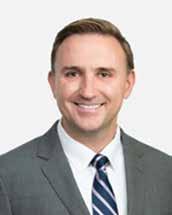
Jason LaFond is a board-certified appellate lawyer with significant experience in the Fifth Circuit.
The following are summaries of selected civil opinions issued by the Fifth Circuit in August 2024. The summaries are overviews of particular aspects of the opinions; please review the entire opinions.
>ADMINISTRATIVE LAW: Federal agency lacked statutory authority to promulgate decisional rules for insurance rate arbitrators.
Tex. Med. Ass’n v. U.S. Dep’t of Health & Hum. Servs., 110 F.4th 762 (5th Cir. 2024).
In its first comprehensive application of the Supreme Court’s Loper Bright decision, which overruled Chevron deference, the Fifth Circuit affirmed the district court’s vacatur of various insurance-rate regulations promulgated by Health & Human Services (HHS).
The regulations concern insurance rate arbitration under the federal No Suprises Act (NSA). In relevant part, the NSA provides for arbitration if a patient’s insurer and his out-of-network provider cannot agree on a rate for provided services. The Act directs HHS to promulgate regulations establishing “one independent dispute resolution process...under which...[an arbitrator] determines...the amount of payment” for covered services “in accordance with” various statutory provisions.
The Act further directs the arbitrator to consider the “qualify-
ing payment amount” (QPA)—typically the median rate the insurer would have paid for services provided by an in-network provider— and five additional factors.
HHS promulgated regulations setting up the procedure for arbitrations and also regulations setting forth how the arbitrator should consider the statutory factors. Plaintiffs challenged the latter regulations as being outside the agency’s authority. The district court granted summary judgment to Plaintiffs.
In affirming, the Court relied on Loper Bright for the principle that reviewing courts have the responsibility to fix the boundaries of delegated authority and ensure that agencies engage in reasoned decision-making within those boundaries.
The Court concluded that the challenged regulations fell outside the Act’s statutory boundaries: The Act’s delegation of authority was intended to be narrow, focusing on procedural and administrative aspects rather than on substantive decision-making that would affect the balance of factors that arbitrators must consider in resolving payment disputes.
The Court reasoned that the Act provided a comprehensive list of factors for arbitrators to consider, leaving no room for the departments to impose additional substantive constraints. And while the regulations prioritized the QPA over other factors, the Act did not prioritize any specific factor.
The Court also affirmed the district court’s chosen relief—universal vacatur. The Court rejected HHS’ argument that vacatur would disrupt the arbitration process and lead to less predictable outcomes. The Court reasoned that vacatur would simply restore the status quo ante, where arbitrators were operating under the statute without the improper regulatory constraints.
MOOTNESS: Change in law mooted defendant’s appeal of preliminary injunction even though change did not moot the entire case. Arms of Hope v. City of Mansfield,
No. 23-10656, 2024 WL 3872899 (5th Cir. Aug. 20, 2024).
In 2023, the City of Mansfield, Texas, enacted ordinances regulating unattended donation boxes (UDBs), ostensibly to address concerns related to visual clutter and urban blight. These ordinances imposed extensive permitting requirements and other restrictions. Plaintiff, a charitable organization operating UDBs in Mansfield, challenged these ordinances under the First Amendment, arguing that they were overly restrictive and granted the City too much discretion in denying permits.
The district court preliminarily enjoined the ordinances, finding they were likely to fail intermediate scrutiny due to their broad scope and the unbridled discretion afforded the City. The City appealed.
During the appeal, the City enacted new ordinances, substantially revising the restrictions in an effort to address the district court’s concerns. These new ordinances repealed the 2023 ordinances to the extent of any conflict.
The Fifth Circuit asked for briefing on the effect of the new ordinances. Both parties argued that the appeal was not moot.
The Court disagreed, reasoning that because the new ordi-
nances supplanted the old ones, the preliminary injunction had no remaining practical effect. The appeal, which sought to challenge the injunction against now-defunct laws, no longer presented a live controversy.
The Fifth Circuit distinguished appeals of preliminary injunctions from situations in which various doctrines would prevent mootness. Under the voluntary cessation doctrine, for example, a case is not rendered moot if the defendant ceases the challenged conduct during litigation and there is a risk of the conduct recurring. This doctrine did not apply here because the underlying case remained live in the district court, where the merits of the new ordinances could still be fully litigated. Likewise, the “capable of repetition, yet evading review” exception is generally inapplicable in the context of interlocutory appeals when the underlying case continues to present a justiciable issue.
The Court, however, refused to vacate the preliminary injunction, even though vacatur is a typical remedy when an appeal becomes moot. The Fifth Circuit explained that vacatur is warranted only where mootness occurs through happenstance, not when it is the result of the losing party’s voluntary actions, as was the case here. AL
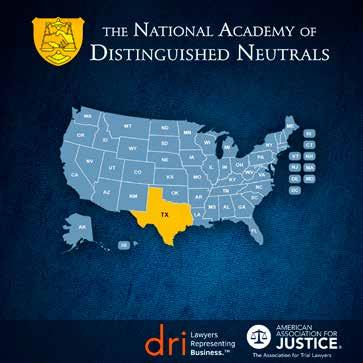

Laurie Ratliff is a former staff attorney for the Third Court of Appeals. She is board-certified in civil appellate law by the Texas Board of Legal Specialization and is the owner of Laurie Ratliff LLC.
The following are summaries of selected civil opinions issued by the Third Court of Appeals during August 2024. The summaries are an overview; please review the entire opinion. Subsequent histories are current as of Sept. 13, 2024.
>TRIAL PROCEDURE:
Commercial-speech exemption barred TCPA dismissal.
Carpenter v. Daspit Law Firm, PLLC, No. 03-22-00466-CV (Tex. App.—Austin Aug. 14, 2024, no pet. h.) (mem. op.).
Firm sued former associate after he solicited firm clients to his new firm. Associate’s Texas Citizens Participation Act (TCPA) motion to dismiss was overruled by operation of law. The court
of appeals concluded the TCPA applied and addressed whether the commercial-speech exemption applied. The commercial-speech exemption excludes legal actions brought against a person primarily engaged in selling services if the statement arises out of the sale of services when the intended audience is an actual or potential customer. Associate was engaged in selling legal services, his communications with firm’s clients were in his capacity as a seller of legal services, his communications arose from his efforts to solicit legal services, and the communications were made to potential clients. The Court held that the exemption applied, and thus the TCPA did not apply. The Court affirmed.
TORT CLAIMS ACT:
Administrator of Medicaid program is not a State agent.
ACS State Healthcare, LLC v. M&M Orthodontics, PA, No. 0323-00294-CV (Tex. App.—Austin Aug. 15, 2024, no pet. h.) (mem. op.).
Healthcare administered a Medicaid prior-authorization program for State. Doctors sued Healthcare alleging that the approval process resulted in an administrative enforcement action against them. Healthcare filed a plea to the jurisdiction asserting it was a State agent and thus the Texas Tort Claims Act (TTCA) bars Doctors’ claims that were raised against State in a separate case that had settled. The trial court denied the plea. The court

of appeals addressed whether Healthcare was an independent contractor or a State agent. The contract identified Healthcare as an independent contractor and gave State no control over the details of the work. Accordingly, the Court held that Healthcare failed to establish that it was an agent of State and affirmed. The dissent concluded Healthcare was not a governmental unit under the TTCA and would have dismissed for want of jurisdiction.
ADMINISTRATIVE LAW: Failure to exhaust administrative remedies barred judicial review.
Travis Cent. Appraisal Dist. v. AGAS Ventures, LLC, No. 03-2200676-CV (Tex. App.—Austin Aug. 15, 2024, no pet. h.) (mem. op.).
Owners challenged orders determining protest for tax year 2019. Travis Central Appraisal District (TCAD) moved to dismiss because Owners’ failed to pay any portion of the taxes due before Feb. 1, 2020, a prerequisite for judicial review. The trial court denied TCAD’s motion.
The court of appeals observed that Tax Code § 31.02 requires owners to pay taxes before Feb. 1 of the year after the taxes were imposed. Section 42.08 conditions judicial review on timely payment. Owners paid in May, three months after the deadline. The Court rejected Owners’ argument that taxes were not imposed until after settlement negotiations ended in September 2020. According to the Court, taxes are imposed when due. Settlement
negotiations did not delay imposition of taxes. The Court reversed and dismissed.
ORIGINAL PROCEEDING:
Court grants mandamus relief in discovery dispute.
In re Sneed, Vine & Perry, P.C., No. 03-24-00283-CV (Tex. App.— Austin Aug. 29, 2024, orig. proceeding) (mem. op.).
Following a foreclosure, investors (real parties in interest, RPIs) sued property manager for breach of fiduciary duty for allowing the foreclosure to occur. RPIs sought to depose property manager’s attorney in both the foreclosure suit and in the underlying breach of fiduciary duty suit. RPIs sought information from attorney relating to specific actions taken in defense of the foreclosure. The trial court granted RPI’s motion to compel the deposition of attorney’s firm’s corporate representative. The court of appeals concluded the requested information was core work product under Rule 192.5. The Court further concluded that the firm met its burden to show that questions about why attorney took specific actions in the foreclosure proceeding sought his thought processes and legal strategy and were thus privileged. The Court granted mandamus relief. AL

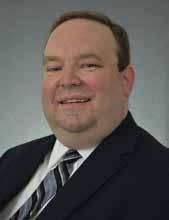
The following is a summary of selected criminal opinions issued by the Third Court of Appeals from February 2024. The summary is an overview; please review the entire opinions. The subsequent history is current as of Sept. 5, 2024.
>LESSER-INCLUDED
OFFENS -
ES: Assault on a public servant vs. resisting arrest. Resisting arrest was not a lesser-included offense of assault on a public servant as charged.
Watson v. State, No. 03-22-00278CR (Tex. App.—Austin Feb. 16, 2024, no pet.) (mem. op., not designated for publication).
The State charged Watson with assault on a public servant, alleg-
ing that she “intentionally, knowingly, or recklessly cause[d] bodily injury to [a deputy] by kicking [the deputy] in the chest,” while the deputy was arresting her. At trial, Watson requested an instruction on resisting arrest, which she argued was a lesser-included offense of assault on a public servant. The trial court refused the request, and the appellate court concluded that the trial court did not err in doing so. The Court used the cognate-pleadings approach to determine whether resisting arrest could be established by proof of the same or less facts required to establish the commission of assault on a public servant. A person commits the offense of resisting arrest when a person “intentionally prevents or obstructs a person he knows is a peace officer...from effecting an arrest...of the actor...by using force against the peace officer.” Comparing the elements, the Court concluded that resisting arrest contains the “prevents or obstructs” element, while the assault offense does not. Additionally, resisting arrest requires intentional conduct, while assault on a public servant could be committed recklessly. Thus, “as a matter of law...as pleaded in the indictment...assault on a public servant did not include resisting arrest as a lesser-included offense.”
TRAFFIC STOPS: Reasonable suspicion. Defendant’s movement between lanes in intersection provided deputy with reasonable suspicion to stop defendant for failure to signal.
State v. Charles, 693 S.W.3d 825 (Tex. App.—Austin 2024, no pet.).
While on patrol, a sheriff’s deputy observed a vehicle move from the far-left lane at an intersection—the turn-only lane—to the leftmost straight-only lane, without signaling a lane change. After the vehicle cleared the intersection, the vehicle “was driving in two lanes” at once, and the deputy decided to initiate a traffic stop of the vehicle. Following the stop, the deputy arrested the driver, identified as Charles, for driving while intoxicated. Charles filed a motion to suppress, arguing that the deputy did not have reasonable suspicion to believe that he had committed a traffic offense. The trial court agreed and granted the motion to suppress. The appellate court reversed, concluding that Charles’s movement at the intersection constituted a lane change for purpose of the signal statute and that Charles was required to signal a lane change regardless of whether the change could be made safely.
GUILTY PLEAS:
Stipulation not formally admitted into evidence. Defendant’s written stipulation to committing offense, although not admitted into evidence, could be used to substantiate his guilty plea.
Alexander v. State, No. 03-2300041-CR (Tex. App.—Austin Feb. 22, 2024, no pet.) (mem. op., not designated for publication). Alexander pleaded guilty to driving while intoxicated. At the plea hearing, Alexander signed a
stipulation in which he judicially confessed to the facts alleged in the indictment and agreed and stipulated that the facts were “true and correct and constitute evidence in this case.” The trial court, defense counsel, and the prosecutor approved and signed the stipulation. Although the State offered the stipulation into evidence, the trial court did not formally admit it. Instead, the trial court proceeded to hear evidence on punishment, found Alexander guilty of driving while intoxicated, and sentenced him to 11 years’ imprisonment. On appeal, Alexander argued that because the trial court did not formally admit the stipulation, the evidence was insufficient to support his plea. The appellate court disagreed, concluding that the trial court and the parties treated the stipulation as if it had been admitted into the evidence and that the trial court had considered it. Additionally, the Court observed that the criminal plea worksheet contained handwritten check marks in the boxes of the section addressing the stipulation, including the box “Admit the Stipulation.” Also, before finding Alexander guilty of the charged offense and pronouncing the sentence, the trial judge explained that it had “reviewed the file [and] the records that were admitted into evidence.” The stipulation was included in the trial court’s file, and Alexander did not object to the trial court’s consideration of the stipulation. Thus, the evidence was sufficient to support the guilty plea. AL




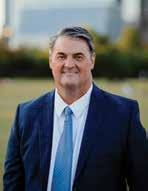






August District & County Court Jury Trial Verdicts
BY VELVA PRICE, TRAVIS COUNTY DISTRICT CLERK
Editor’s Note: The monthly jury trial verdicts update is first published through Bar Code and the Austin Bar app. Download the app today on either the App Store or the Google Play Store.
CIVIL
Fortunate Payne and Josselyn Martinez v. Cynthia Owens
Cause No: D-1-GN-22-002136
Judge: Daniella Deseta Lyttle, 261st Civil District Court
Dates: Aug. 5 - 7, 2024
Attorneys:
Plaintiffs: Kacie Starr, Brylak & Associates, LLC
Defendant: Jacob Perez, Martinez, Dieterich & Zarcone Legal Group
Case Summary: Motor vehicle accident that occurred on May 30, 2021. 10 of the jurors found no negligence on either party.
Eric Williams v. The Carpenter Hotel, LLC and Carp 2020 Holdings, LLC
Cause No: D-1-GN-22-006776
Judge: Catherine Mauzy, 419th Civil District Court
Dates: Aug. 5 - 8, 2024
Attorneys:
Plaintiff: Cole Gumm, Zinda Law Group, PLLC
Defendant: Matthew Walker/ Beasia Dozier, Litchfield Cavo, LLP
Case Summary: Plaintiff claimed that on Sept. 25, 2022, he was injured when he stepped into a overgrown area and fell three to four feet. 11 jurors found that the Plaintiff was an invitee and was five percent negligent, and Defendant was 95 percent negligent. Damages awarded: Past medical care–$75,467.69; Future medical care – $10,000; Past physical pain – $50,000; Future physical pain – $5,000; Past physical impairment – $50,000; Future physical impairment – $10,000; Past disfigurement – $1,000. The jury also found that gross negligence occurred and awarded $200,000 in exemplary damages.
Steve Lopez v. Abrams International LLP; Abrams Management Company; Abrams International Incorporated, J.D. Abrams, Inc.
Cause No: D-1-GN-22-002514
Judge: Madeline Connor, 353rd Civil District Court
Dates: Aug. 6 - 12, 2024
Attorneys:
Plaintiff: Guilherme Vasconcelos DJC Law, PLLC
Defendant: Rodney P. Geer, Fee, Smith & Sharp, L.L.P.
Case Summary: Plaintiff claimed that on May 4, 2021, he was injured when logs fell from the construction site as he went under Highways 183 and 35. Ten jurors found that the Defendant, J.D. Abrams, L.P. was negligent. Damages awarded were: Past physical pain and mental anguish – $300,000; Future physical pain and mental anguish – $900,000; Future loss of earning capacity – $780,000; Past physical pain –$150,000; Future physical impairment – $650,000; Past reasonable expenses of necessary medical care – $727,000; Future reasonable expenses of necessary medical care – $1,000,000.
George Pate v. Priscilla Mazariegos
Cause No: C-1-CV-23-005264
Judge: Jessica Mangrum, 200th Civil District Court
Dates: Aug. 20 - 21, 2024
Attorneys:
Plaintiff: Chris Self, KPA Law, PLLC
Defendant: Isaac Liou, Regency Law Associates
Case Summary: Plaintiff claimed that on Nov. 9, 2022, he was injured in a motor vehicle accident. Unanimous jury of six found the Plaintiff was negligent.
Aaron McNeil v. Texas Regional Landfill Co., LP
Cause No: D-1-GN-23-000676
Judge: Jan Soifer, 345th Civil District Court
Dates: Aug. 20 - 23, 2024
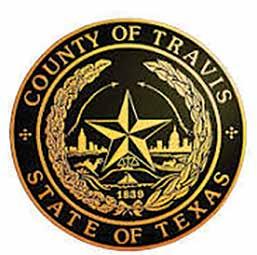
Attorneys:
Plaintiff: Charles Dunn/Mark Pierce and Christine Londergan, DJC Law, PLLC
Defendant: John Plumlee/Bret Sanders, Fee Smith & Sharp, L.L.P.
Case Summary: Premises liability case against Defendant, who owns and operates landfill, for personal injuries by Plaintiff, an invitee who fell while balancing on a horizontal post because of the absence of a catwalk or warnings at the scale (trying to get to the scale office and get a receipt). Ten jurors found that the Defendant was 100 percent negligent. Damages totaled $3,962,887.05: Past physical pain and mental anguish – $1,000,000; future physical pain and mental anguish – $2,000,000; past loss of earning capacity – $50,000; past disfigurement – $8,000; future disfigurement – $8,000; past physical impairment – $100,000; future physical impairment –$500,000; past medical expenses – $96,887.05; future medical expenses – $200,000.
Jon Weldon and Rhonpda Weldon v. Rod Prothero, Ind. And D/B/A K.R.P. Construction Cause No: D-1-GN-18-000153
Judge: Catherine Mauzy, 419th Civil District Court Dates: Aug. 20 - 26, 2024
Attorneys:
Plaintiff: Sally Metcalfe, Metcalfe Law, PLLC
Defendant: Thomas A. Mailloux, II, Brock Guerra Strandmo Dimaline Jones, P.C. Case Summary: Plaintiffs claimed that they entered an agreement with the Defendant to construct a home. The Plaintiffs found several defects in the home including water leaks. Ten jurors found that the Defendant engaged in false, misleading, or deceptive practices. The jury determined that the Plaintiffs should have discovered the misleading acts in 2019 and that the Defendant knowingly engaged in deceptive conduct but such conduct was not unconscionable. Damages awarded: Reasonable and necessary expense for laboratory testing, engineering and consulting fees – $35,915; Past reasonable and necessary expense to repair and construct home – $356,140; Reasonable and necessary expense for temporary housing – $0; Past mental anguish – $0; Future mental anguish – $0. Attorney fees are pending.
Jack Swanson v. Farmers Insurance Exchange
Cause No: D-1-GN-21-002734
Judge: Laurie Eiserloh, 455th Civil District Court
Dates: Aug. 20 - 23, 2024
Attorneys:
Plaintiff: Daniel Smith/David Wenholz, Law Office of Joel A. Levine, PLLC
Defendant: Angela Hahn/Scot G. Doyen, Doyen Sebesta & Poelma, LLLP.
Case Summary: Plaintiff was involved in a motor vehicle accident on or about July 25, 2019. Plaintiff sued Defendant based on the policy of insurance in force and effect at the time of the accident. Ten of the jurors awarded damages: Past physical pain – $300,000; Past physical impairment – $305,000; Future physical pain/Past mental anguish/Future mental anguish/ Future physical impairment/Past physical disfigurement/Future physical disfigurement/Future medical care – $0.
Robert Puetz v. Dr. Scott
Spann
Cause No: D-1-GN-19-004763
Judge: Karin Crump, 250th Civil District Court
Dates: Aug. 19 - 23, 2024
Attorneys:
Plaintiff: George Parker, Dewhurst & Dolven, LLC
Defendant: Christopher Henderson, Ballard & Simmons, LLP
Case Summary: Plaintiff claimed that the Defendant was negligent when he performed healthcare treatments. Ten of the jurors found that Scott Spann, MD, was negligent. Damages: Past physical pain, emotional distress, and mental anguish – $18,750; Future physical pain, emotional distress, and mental anguish – $18,750; Past physical impairment –$18,750; and Future physical impairment – $18,750.
CRIMINAL
State of Texas v. Tara Cho
Cause No: D-1-DC-24-203260
Judge: Leon Grizzard
Dates: Aug. 5, 2024
Attorneys:
State of Texas: Amanda Reid
Defendant: Michael Watson
Case Summary: Defendant, Tara Cho, was arrested for aggravated assault with a deadly weapon. Jury trial was only to determine if the Defendant was mentally competent to stand trial. Jury found that Defendant, Tara Cho, was
mentally competent to stand trial.
State of Texas v. Jason
Nassour
Cause No: D-1-DC-24-904061
Judge: Karen Sage
Dates: Aug. 12- 15, 2024
Attorneys:
State of Texas: Holly Taylor
Defendant: Joseph Turner, Joseph A. Turner, P.C., Keith Hampton
Case Summary: Defendant Jason Nassour was indicted for fabrication/tampering of physical evidence with intent to impair and conspiracy to fabricate/tamper of
physical evidence with intent to impair. Jury was empaneled but the State of Texas’ motion to stay was granted. The case is presently on appeal. AL
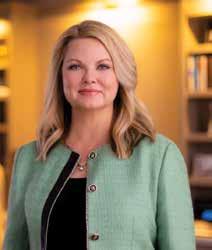






Austin Bar Members Appear Before SCOTX to Deliver Oral Arguments
The Supreme Court of Texas convened Sept. 10-12, 2024, and heard oral arguments from several Austin Bar members

Austin Bar Member
DOUGLAS W. ALEXANDER
Alexander Dubose & Jefferson, for Petitioner
In The Matter of The Marriage of Carlos Y. Benavides, Jr. and Leticia R. Benavides
Family Law – Divorce Decrees
The issues in this case are (1) whether, and in what circumstances, a guardian may petition for divorce on behalf of a ward and (2) the effect of one spouse’s death on the appeal from a divorce decree.
Carlos and Leticia Benavides married in 2005. Carlos was later placed under a guardianship. Carlos’ guardian—his adult daughter, Linda—separated Carlos from Leticia.
In 2018, Linda filed a petition for divorce on Carlos’ behalf. Linda moved for partial summary judgment that the divorce should be granted because Carlos and Leticia lived apart for more than three years—a no-fault ground for divorce under the Family Code. The trial court granted Linda’s motion and rendered a final divorce decree. Leticia appealed, but while her appeal was pending, Carlos passed away. The court of appeals concluded that Carlos’ death mooted Leticia’s appeal of the partial summary judgment granting the divorce, but it otherwise affirmed the divorce decree and its disposition of the couple’s property.
Leticia petitioned for review, arguing that her challenge to the divorce decree is not moot, that a guardian cannot petition for di-
vorce on behalf of a ward, and that a living-apart divorce requires that at least one of the spouses voluntarily separated. The Supreme Court granted the petition for review.
Case documents can be viewed at: https://search.txcourts.gov/ Case.aspx?cn=23-0463&coa=cossup.
The recording of this argument can be found on YouTube at: https://www.youtube.com/ watch?v=HMSEbo9tbZk.

Bar Member HANNAH M. VAHL
City of Austin Law Department, for Petitioner
City of Austin v. Powell
Governmental ImmunityTexas Tort Claims Act
At issue in this case is whether a police officer in a high-speed chase acted with reckless disregard such that the emergency exception under the Texas Tort Claims Act does not apply and immunity is waived.
Officer Bullock was assigned as backup to pursue a suspect in a vehicle chase. He was following Officer Bender, who slowed down suddenly to make a right turn based on the radio report of the suspect’s location. Bullock rammed into the back of Bender’s vehicle, causing the two police cruisers to crash into Powell’s van sitting at the stop sign.
After Powell sued the City, the trial court denied the City’s plea to the jurisdiction based on the Texas
Tort Claims Act’s emergency exception. The court of appeals affirmed, concluding that Bullock’s failure to maintain a safe following distance, combined with his inattention and failure to control his speed, create a fact issue on recklessness. The City filed a petition for review in the Supreme Court, challenging the court of appeals’ analysis. The Court granted the petition. Case documents can be viewed at: https://search.txcourts.gov/ Case.aspx?cn=22-0662&coa=cossup.
The recording of this argument can be found on YouTube at: https://www.youtube.com/ watch?v=dXddCe9ZEo8

Austin Bar Member DALE WAINWRIGHT Greenberg Traurig for Petitioner

Austin Bar Member STEVEN HASPEL Whitehurst Harkness Brees Cheng Alsaffar Higginbotham & Jacob for Respondent
Renaissance Med. Found. v. Lugo
NegligenceVicarious Liaiblity
The issue is whether a nonprofit health organization certified under Section 162.001(b) of the
Occupations Code can be held vicariously liable for the negligence of a physician employed by the organization.
Renaissance Medical Foundation is a nonprofit health organization certified by the Texas Medical Board. Dr. Michael Burke, who works for Renaissance, performed brain surgery on Rebecca Lugo’s daughter. Lugo sued Renaissance, in addition to suing Dr. Burke, alleging that it is vicariously liable for Dr. Burke’s negligence in performing the surgery that caused permanent physical and mental injuries to her daughter.
Renaissance moved for summary judgment, arguing that it cannot be held vicariously liable because it is statutorily and contractually barred from controlling Dr. Burke’s practice of medicine. The trial court denied the motion after concluding that Dr. Burke’s employment agreement gives Renaissance the right to exercise the requisite degree of control over Dr. Burke to trigger vicarious liability. Renaissance filed an interlocutory appeal. The court of appeals affirmed.
Renaissance petitioned for review, arguing that the Section 162.001(b) framework, which prohibits Renaissance from interfering with the employed physician’s independent medical judgment, precludes vicarious liability. The Supreme Court granted the petition for review.
Case documents can be viewed at: https://search.txcourts.gov/ Case.aspx?cn=23-0607&coa=cossup.
The recording of this argument can be found on YouTube at: https://www.youtube.com/ watch?v=q5oYoW390QM

Oil and Gas - Leases
At issue in this case is the proper calculation of Kenneth Hahn’s royalty interest in a tract of land in DeWitt County, Texas.
In 2002, Hahn conveyed the tract to William and Lucille Gips but reserved a 1/8 non-participating royalty interest. Eight years later, the Gipses leased the tract to a subsidiary of ConocoPhillips. The lease entitled the Gipses to a 1/4 royalty and gave Conoco the right to pool the acreage covered by the lease. After Hahn ratified the lease, Conoco pooled the tract into a larger unit. Hahn and the Gipses then signed a stipulation of interest, agreeing that Hahn reserved a 1/8 “of royalty” when he conveyed the tract to the Gipses.
In 2015, Hahn sued Conoco and the Gipses, alleging that he reserved a fixed 1/8 royalty in the tract, rather than a floating royalty. The trial court disagreed and granted summary judgment for the Gipses. But the court of appeals reversed, holding that Hahn reserved a fixed royalty and that the trial court erred by considering the stipulation of interest. Conoco and the Gipses petitioned the Supreme Court for review, but the Court denied their petitions.
On remand, Conoco argued that because Hahn ratified the Gipses’ lease, his royalty should be diminished by their 1/4 royalty. The trial court granted summary judgment for Conoco, but the court of appeals reversed, holding that Hahn was only bound to the lease’s pooling provision. The court of appeals also disagreed with Conoco that the intervening decision in Concho Resources, Inc. v. Ellison, 627 S.W.3d 226 (Tex. 2021), required it to consider the stipulation of interest.
Conoco petitioned the Su-
preme Court for review, arguing that the court of appeals erred by: (1) concluding that Hahn ratified only the lease’s pooling provision and (2) disregarding the stipulation of interest.
The Court granted Conoco’s petition for review.
Case documents can be viewed at: https://search.txcourts.gov/ Case.aspx?cn=23-0024&coa=cossup.
The recording of this argument can be found on YouTube at: https://www.youtube.com/ watch?v=OctIafI2zso. AL




Austin Bar Launches Legal Expert Network
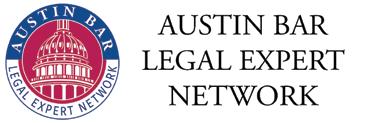
The Austin Bar has launched its Legal Expert Network to provide the media valuable sources when reporting on important cases, legal matters, legislation, and more.
The Austin Bar is committed to being a resource connecting the legal profession with the larger community.
Part of the Austin Bar’s mission is to enhance the legal profession through education. We can accomplish this by ensuring we provide the media and their viewers and readers the best sources

on the topics that matter to them.
If you are a reporter or other member of the media interested in getting the opinion of an at torney, please contact Austin Bar Communications Director Billy Huntsman at billy@austinbar.org
Please include a summary of your question and any other pertinent information, such as a summary of the case, legislation, etc.
If you are an attorney interest ed in providing your expert legal opinion to the media, please fill out the form at: gle/FtocgfxbAB8oqW4i9.
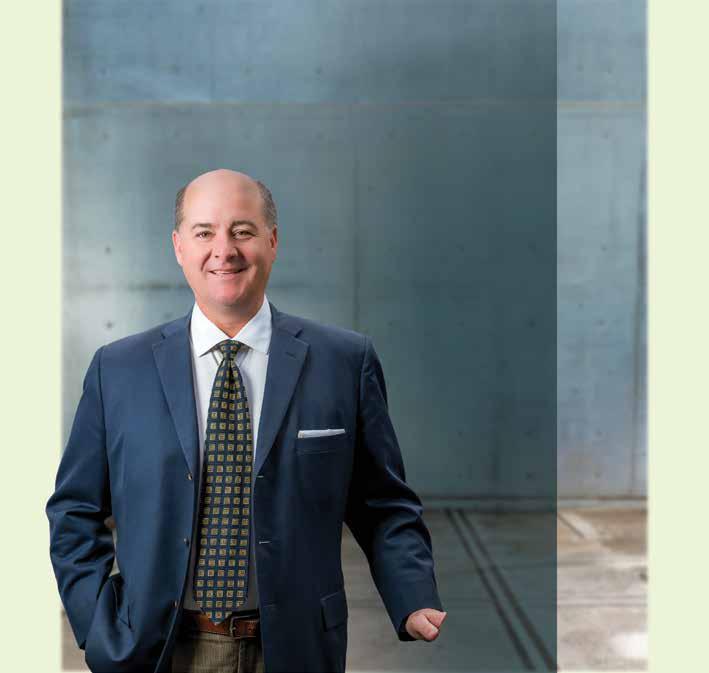

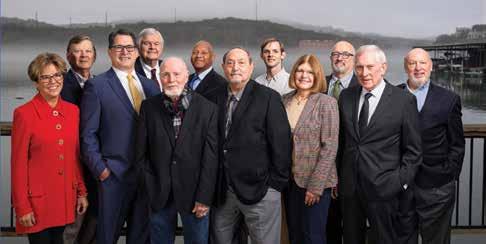
Celebrating its 23rd year, Lakeside is proud to welcome Jeff Jury and Tracy Allen, both past presidents of the International Academy of Mediators with decades of experience mediating and arbitrating cases. Collectively, Lakeside mediators have presided over 15,000 mediations and hundreds of arbitrations.
Gala Sponsorships Now Available; Make Plans for January 25
The Austin Bar Foundation Gala is Jan. 25, 2025, at the Four Seasons!
Are you interested in sponsoring the event? Below are our sponsorship levels and their benefits:
Benefactor Sponsor– $15,000
• Table for 10 guests. Premium table placement at the front of the stage
• Recognition in program
• Recognition on website
• Recognition in the Austin Lawyer publication
• Recognition on signage at the event
• Recognition on slides at the event
• Recognition on social media
• Wine service during dinner
• Valet parking for 10 guests
• One guest hotel room for table host
Foundation Sponsor– $10,000
• Table for 10 guests
• Recognition in program
• Recognition on website
• Recognition in the Austin Lawyer publication
• Recognition on signage at the event
• Recognition on slides at the event
• Recognition on social media
• Wine service during dinner
• Valet parking for 10 guests
Table Sponsor–$7,500
• Table for 10 guests
• Recognition in program

• Recognition on website
• Recognition in the Austin Lawyer publication
• Recognition on signage at the event
• Recognition on slides at the event
• Recognition on social media
• Wine service during dinner
Half-Table Sponsor–$5,000
• Table for 6 guests
• Recognition in program
• Recognition on website


“Information is power, the not knowing is devastating.”
• Recognition in the Austin Lawyer publication
• Recognition on signage at the event
• Recognition on slides at the event
• Recognition on social media
• Wine service during dinner
Additional Sponsorships
• Additional sponsorship opportunities are also available:
• Bar Sponsor (6 available)– $1,500
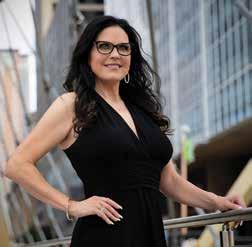
• Photo Booth Sponsor–$2,500
• Casino Sponsor –$2,500
• Live Auction Sponsor–$2,500
• Silent Auction Sponsor–$1,000
• Decorations Sponsor–$1,500
• Dessert Sponsor (2 available)–$1,000
• DJ Sponsor–$5,000
• Bid Paddle Sponsor
To purchase tickets or sponsorships, please contact Debbie Kelly at: debbie@austinbar.org. AL
Divorce and Child Custody
Surveillance ~ Undercover Background Checks
Computer & Phone Forensics
Corporate Investigations
Expert Testimony and more
Offices in Austin, Round Rock, & Dallas STRICTLY CONFIDENTIAL



Abigail Ventress-Hyde is an Associate Attorney at VBPena Law, PLLC practicing civil litigation and appeals. This article provides a broad overview of a recent case; please review the entire opinion.
In August, a big decision was made in Texas regarding the anticipated federal ban on most non-compete agreements that was supposed to take effect on Sept. 4, 2024. The anticipated ban is also known as the U.S. Federal Trade Commission (FTC)’s “Non-Compete Rule” of 16 C.F.R. § 910.1-6.
U.S. District Judge Ada Brown granted summary judgment for a business entity and determined that the FTC lacked statutory authority to adopt broad rules that would ban employers from requiring employees to sign non-compete agreements.1 Judge Brown found that the FTC’s “sweeping prohibition” was arbitrary and capricious because it did not specifically target harmful noncompete agreements.2
Non-compete agreements are a widespread business practice in the U.S., which the FTC seeks to ban, taking the position that the agreements pose an unfair restraint on competition.3 Opponents of the ban are concerned about increased difficulty to protect proprietary information.4
While the FTC’s rulemaking typically pertains to consumer protection issues, its intended ban on non-compete agreements focused on unfair methods of competition.5 Judge Brown agreed that the FTC has power to prevent unfair methods of competition but determined that power was limited to creating proce-
Non-Compete Agreements: An Update on the Anticipated FTC Ban
BY ABIGAIL VENTRESS-HYDE, VBPENA LAW, PLLC
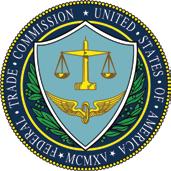
dural rules — not substantive rules.6 Thus, the Court held that the agency had exceeded its authority.
In the case that barred the ban, Ryan LLC v. Federal Trade Commission, a tax company (Ryan LLC) sued the FTC under the Administrative Procedure Act (APA) and sought declaratory judgment that the FTC’s regulations rendering most non-compete agreements unenforceable are unlawful.7 Chambers of commerce at the federal, state, and local levels intervened, and the Court heard competing motions for summary judgment, which resulted in the opinion barring the ban.8 The Court’s decision in favor of the business entity was consistent with its prior order granting an injunction to the business entity to delay the enforcement of the FTC ban.9
Much of the Court’s analysis in evaluating the competing summary judgment motions focused on whether there was congressional intent to confer the broad power to the FTC to create such regulations for unfair methods of competition.10 In comparing language in the FTC Act, the Court considered that in a section of the FTC Act, Congress expressly limited the FTC’s ability to create rules concerning “unfair or deceptive business practices” but not about ‘unfair methods of competition.’11 The Court opined that the FTC’s non-compete rule is also unreasonably broad without a reasonable explanation and is lacking of adequate justification.12
Although the ban is currently set aside, it will be interesting to continue following this issue to see if it makes its way to the Supreme Court.
Federal judges in Florida and Pennsylvania have faced similar questions concerning the validity of the FTC ban. However, as of the time of writing this article, those decisions have not gotten as far as the case in Texas.
In Florida, the federal judge issued a limited specific injunction that tentatively ruled against the ban while the federal judge in Pennsylvania tentatively supported the ban by denying an injunction against the ban.13
Although the ban is currently set aside, it will be interesting to continue following this issue to see if it makes its way to the Supreme Court. If the FTC is successful with its original plan, the ban would reform business practices and could have substantial effects on business litigation. AL
ENDNOTES:
1 Reuters and Jeanne Sahadi, US judge strikes down Biden administration ban on worker ‘noncompete’ agreements, CNN, (Aug. 21, 2024, 12:39 p.m.), https://www.cnn.com/2024/08/20/ business/us-judge-strikes-down-noncompete-agreements/index.html (last visited Aug. 30, 2024).
2 Id.
3 Id.
4 Id.
5 Bryan Koenig, FTC 1st Test of Rulemaking Push In Noncompetes Loss, Law360, (Aug. 21, 2024, 8:48 p.m.), https://www.law360.com/texas/ articles/1872097?nl_pk=1231604150d2-4f6f-a306-1e6726bc6309&utm_source=newsletter&utm_ medium=email&utm_campaign=tex-
as&utm_content=2024-08-22&read_ main=1&nlsidx=0&nlaidx=4 (last visited Aug. 30, 2024).
6 Id.
7 Ryan, LLC v. Fed. Trade Comm’n, No. 3:24-CV-00986-E, 2024 WL 3879954 (N.D. Tex. Aug. 20, 2024) (mem. op. and order).
8 Id. at *1.
9 Id. at *8.
10 Id. at *9-10.
11 Id.
12 Id. at *13-*14.
13 Koenig, FTC 1st Test of Rulemaking Push In Noncompetes Loss, Law360, (Aug. 21, 2024, 8:48 p.m.).
OTHER SOURCES
1. Fed. Trade Comm’n, FTC Announces Rule Banning Noncompetes (April 23, 2024), https://www.ftc.gov/newsevents/news/press-releases/2024/04/ ftc-announces-rule-banning-noncompetes (last visited Aug. 30, 2024).
2. Danielle Kaye, Judge Blocks F.T.C.’s Noncompete Rule, N.Y. Times (Aug. 20, 2024), https://www.nytimes. com/2024/08/20/business/economy/ noncompete-ban-ftc-texas.html (last visited Aug. 30, 2024).
3. Andrea Hsu, Federal judge throws out U.S. ban on noncompetes, NPR (Aug. 21, 2024), https://www.npr. org/2024/08/21/g-s1-18376/federal-judge-tosses-ftc-noncompetes-ban (last visited Aug. 30, 2024).
4. Chris Williams, Judge blocks FTC’s ban on noncompete clauses, stalling worker protections, Fox7 Austin (Aug. 20, 2024, 5:46 p.m.), https://www.fox7austin.com/news/noncompete-clauses-ftc (last visited Aug. 30, 2024).

• Exceptional access from North/South traffic on MoPac (Loop 1) as well as from the primary East/West artery; Northland/FM-2222.
The building has two access points off Balcones allowing easy parking lot flow.
The subject unit is 4,748 SF located on the 2nd level of the building with views of downtown and the surrounding area.
The unit is built out with traditional office finishes, 11 private offices, a breakroom/ kitchen, 2 open work spaces and a conference room.
Excellent Owner-Occupant Opportunity Outstanding location, surrounded by Restaurants & Retailers
www.thenovycompany.com

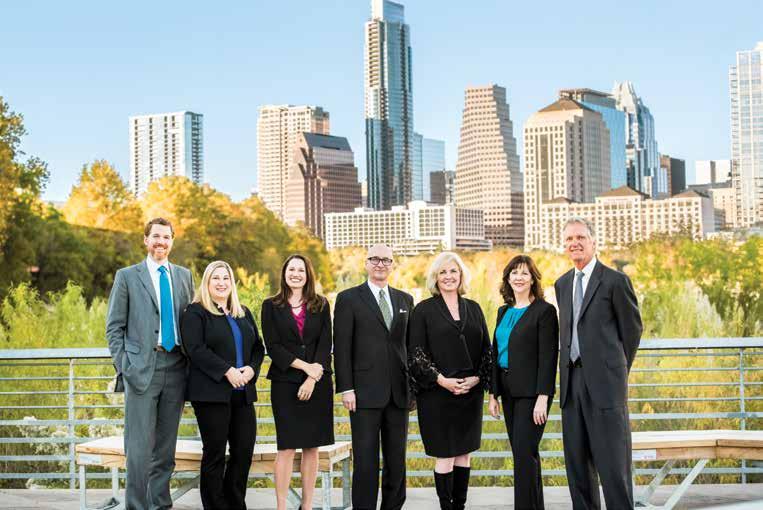
Rosvall, Coleen Kinsler
Bending the Rules: The Argument Against Non-Lawyer Entities Providing
Legal Services
The interest in non-attorney-owned entities providing legal services in such states as Texas, Utah, and Arizona is not without skeptics.
Established by the American Bar Association’s Model Rule 5.4 and enforced by many states’ supreme courts, the rule prohibits fee sharing with and investment in law firms by non-attorneys.
In January 2023, the U.S. Chamber of Commerce Institute for Legal Reform released a report, “The Dangers of Allowing Nonattorney Investment in Law Firms.”
The report’s primary argument is that recent efforts to eliminate or modify Model Rule 5.4 is driven by the “rapidly growing” third-party litigation funding (TPLF) industry. TPLF firms “pay money to a litigant or his or her counsel in a lawsuit in exchange for a contingent interest in any proceeds from the litigation,” the report reads.
Further, the report cites another report from Burford Capital1 in which the firm calls itself “the first legal financier to provide capital in exchange for law firm equity.”
The report argues non-attorney investment in law firms is dangerous because:
• Non-attorney ownership undermines independence;
• It de-prioritizes client interests;
• It will divide loyalties in the firm;
• It will not increase access to justice; and
• It will harm the public.
“Model Rule 1.3 (of the American Bar Association) requires lawyers to ‘act with commitment and dedication to the interests of the client and with zeal in advocacy upon the client’s behalf,’” the report reads. “A nonlawyer financier of a law firm has no similar
obligation or motivation and is driven instead by the pursuit of profits.”
Firms like Burford Capital, based out of the U.K., and Longford Capital, based out of Chicago, are, instead, accountable to investors.
“…downturns and economic pressures…give rise to bad behavior by companies, which in turn leads to litigation and insolvency,” reads Burford’s 2022 Interim Report to its investors, further noting that TPLF firms like Burford “tend to do well in periods like these.”2
In September 2021, Longford Capital announced it had raised $682 million for a new fund.3
This fund attracted “capital from state and municipal pension funds, university endowments, foundations, single and multi-family offices, and high-net-worth individuals,” a press release reads. The fund “will invest in the outcomes of commercial disputes, antitrust and trade regulation claims, and intellectual property claims that Longford believes to be highly meritorious and have a strong likelihood of success.”
With the closing of this recent fund, Longford managed assets worth more than $1.2 billion, “placing it among the largest private equity firms focused on investments in legal assets.”
The report cites one case, Gbarabe v. Chevron Corp., in which the funder and the litigants had a funding agreement. In this agreement, the funder and counsel developed a “project plan,” and the agreement prohibited counsel from deviating from this plan. The client was prohibited from hiring expert witnesses that had not been approved by the funder; the agreement prohibited counsel from engaging any co-counsel or experts without the funder’s written consent. The agreement also required counsel to allow the funder to attend, as an observer, internal meetings with experts,

mediations, or hearings.4
In another case, Chevron Corp. v. Donziger, the TPLF agreement provided Buford Capital control in selecting lawyers, who “controlled the purse strings,” “served as monitors,” and “supervised the costs and course of the litigation.”5
As third-party funding interferes with attorneys’ independence, so it also undermines clients’ interests, the report says.
“Who is the lawyer to listen to when a nonlawyer financier and a litigant disagree about whether to settle a claim early or press on for a substantial but unlikely jury verdict?” the report asks. “In this situation, the funder, driven primarily by the desire to maximize its profits, may be more willing to take the risk of trial in hopes of a windfall profit.”
As TPLF is already influencing and in many aspects controlling individual cases, so will private equity firms exert more influence and control if allowed to invest in whole law firms, the report reads.
Further, private-equity ownership in law firms “could lead to a law firm not selecting clients whose claims are meritorious and just, but not lucrative “or as lucrative as others,” the report reads.
Therefore, private equity “would ironically decrease access to justice,” the report reads.
The researchers expect that private equity will be drawn to legal sectors, such as personal injury, that are “relatively easy to commoditize and where expected
returns are high.” But other areas of law, such as family or immigration, which “require significant tailoring to the specific situation of the client,” may be “difficult to scale or commoditize.” This would mean that such areas, which have high need, would not benefit from private equity investment6, the report reads.
The report further argues that private equity in law firms would directly harm the public by “saddling the courts and undeserving litigants with frivolous and abusive litigation.” AL
This is the fifth installment of the “Bending the Rules” series. Previous installments can be found online at austinlawyeronline.com.
ENDNOTES
1 Burford Capital, Burford Insights: How Would Law Firm Equity Work? (Nov. 6, 2020), https://www.burfordcapital.com/insights/insights-container/video-law-firm-equity-financing/
2 Burford Capital, Burford Capital 2022 Interim Report 7, https://www. burfordcapital.com/media/3135/hy2022-report.pdf
3 https://www.longfordcapital.com/ media/longford-capital-raises-682million-for-new-investment-fund
4 No. 14-cv-00173-SI, 2016 U.S. Dist. LEXIS 103594 (N.D. Cal. Aug. 5, 2016).
5 768 F. Supp. 2d 581 (S.D.N.Y. 2011).
6 Jennifer A. Trusz, Full Disclosure? Conflicts of Interest Arising From Third-Party Funding in International Commercial Arbitration, 101 Geo. L.J. 1649, 1658 (2013).

PARALEGAL TRAINING FROM UT AUSTIN
Start a paralegal journey on your terms. UT Austin’s self-paced Paralegal Certificate Program provides in-depth training in essential legal areas, with enrollment available anytime.
Boost your legal career in just 5 months with our instructor-led program – perfect for aspiring paralegals.
Attend a free information session, or visit: professionaled.utexas.edu/s/paralegal
HOUSTON AUTO APPRAISERS
Office:1-877-845-2368
Cellphone: 832-279-2368
Email: Roy@HoustonAutoAppraisers.com
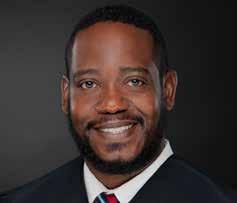


are mentally incapacitated.
Estate planning for single women is often overlooked. Without a spouse to assume key responsibilities in times of need, estate planning is crucial to ensure that your client’s wishes are honored and their loved ones are protected in the event of incapacity or death. When you counsel single women clients, it is important they know that they can safeguard their wishes and protect their loved ones by creating an estate plan to appoint a guardian for minor children, establish a trust for privacy and control, and secure appropriate medical documents.
1. Designating a Guardian for Minor Children
Unless a court determines it is not in the best interest of the children, if a single mother with custody of minor children passes away, the other parent is first in line to obtain custody. However, by designating a guardian for your client’s minor children in her will or other ancillary document, if the other parent is unable or unwilling to take custody of the kids, the court can appoint the person she designated. Most estate planning attorneys use a declaration of appointment of guardian for my children in event of death or incapacity form, which allows for a parent to identify their choice for guardian not only at death, but also if they
Estate Planning for Single Women: Safeguarding Your Client’s Future
BY KARLY SCHLINKERT, JD, & EMILY FAWCETT, JD, TEXAS TRUST LAW
Another important point: While your client may not be able to control whether the other parent receives possession of the children, she can control who manages the money. By including in her plan a trust for her children, she can keep her assets under the management of whomever she selects. They can then distribute those carefully for the children and prevent the other parent from having access to those funds.
2. Privacy and Control Benefits of a Trust
While a will is an essential part of any estate plan, it may not be the best primary tool for single women who value privacy and efficiency. Instead, a revocable living trust can offer more flexibility and control, especially for women who want to keep their estate details out of the public eye and avoid probate.
Unlike a will, which becomes part of the public record once it is filed in probate court, a trust remains confidential. Privacy is usually important for single women who may not want their personal financial information or their family circumstances to be accessible to the public and available online. Also, in the event of incapacity, more information regarding the care of minor children can be contained in a trust.
3. Designating a Health Care Agent
For single women, having a medical power of attorney, liv-
Estate planning is not just about preparing for the end of life; it’s about taking control of the future and making sure that your client’s legacy is protected.
ing will, and a HIPAA release is critical. The medical power of attorney allows your client to select an individual to make medical decisions for them if they are unable to do so themselves. Without it, decisions about medical care default to family members or, in some cases, a court-appointed guardian. The family may not fully understand your client’s medical preferences, or worse, there could be disagreement among family members about the best course of action. The court-appointed guardian would have even less information about the wishes of the ward.
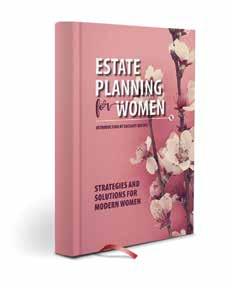
The living will (also called a directive to physicians and surrogates) describes when to “pull the plug,” while the HIPAA release permits health care providers to talk with loved ones about the condition of their patient.
By designating a trusted person as the health care agent, your client ensures that someone who knows their wishes and has their best interests at heart will be making these critical decisions. This can provide peace of mind and minimize the possibility of family disagreements or court involvement.
Conclusion
Estate planning is essential for everyone, but for single women it takes on added importance. By
designating a guardian for minor children, utilizing the benefits of a trust for privacy and control, and obtaining a medical power of attorney, living will, and HIPAA release, single women can ensure that their wishes are respected, and their loved ones are cared for in times of need. Estate planning is not just about preparing for the end of life; it’s about taking control of the future and making sure that your client’s legacy is protected. Our law firm has published a book, Estate Planning for Women, which goes deeper into these and other issues. It is available for free at TexasTrustLaw.com. AL



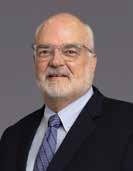


ACLU Sues County Over Lack of Counsel at First Appearance
The American Civil Liberties Union of Texas has filed a class-action complaint in federal court against Travis County over alleged denial of counsel at first appearance (CAFA).1
Together with the ACLU Criminal Law Reform Project and Weil, Gotshal & Manges, the complaint, filed with the Western District of Texas, alleges Travis County requires people who are arrested to attend their first criminal court appearance without providing a lawyer to those who cannot afford one.2
The lawsuit was filed in April 2024. In May, the ACLU released the findings of a project organized by the ACLU of Texas, which recruited volunteer law students to observe “hundreds of first appearances in the first quarter of 2024.”
The observations, “digested by the ACLU’s data and analytics team, support our most recent lawsuit on (CAFA).”3
That project’s findings boil down to three points:
Judges & Release
First appearances are generally conducted via video conference from the basement of the jail in downtown Austin. There, magistrate judges frequently require cash bail. When the bail can’t be paid, the magistrate orders deten-
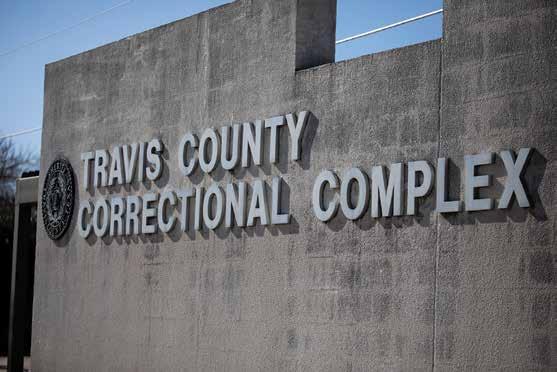
tion, with the caveat that, down the line, a lawyer might make a persuasive argument for release.
Thus, while the detainee is waiting for a lawyer to be appointed, he or she is jailed.
The ACLU reports once detainees are appointed lawyers, the lawyers’ advocacy secures release without cash bail.
The time spent in jail is harmful to the detainee’s job and family. Without a lawyer, the damage
can be compounded by the detainee pleading guilty and accepting a harsher sentence because he or she feels they are fighting a losing battle.
Detainees Self-Incriminate
The lack of CAFA forces detainees to advocate for themselves in “precarious and unfamiliar situations,” the ACLU report states.
Of the cases the volunteer law students observed, 29 percent

of detainees made “potentially harmful statements about their cases.”
Detainees without legal training and without counsel at first appearance frequently make statements that limit strategies for their defense later on.
Some of the casual statements the ACLU documented as being potentially harmful include:
“It happened a long time ago.”
“I have no choice but to be in

that area (site of alleged trespass).”
“Oh, well, I guess it was a crime.”
“If I could do it all over again, I would.”
Video Appearances Treated
as
a Formality
Without CAFA, detainee video appearances are treated as a formality rather than a “meaningful hearing on release.”
The project reports that in 10 percent of first appearances, there were “communication problems resulting from video feeds.” As an example, the report says some magistrates conducted hearings by way of a camera pointed at the meal tray slot on cell doors. The detainees had to communicate by bending over to talk through the slot.
When the magistrate and detainee could not understand each other, they relied on nearby jail staff to relay what was said.
Relief Sought
Weil, Gotshal & Manges represent the plaintiff, whose identity was redacted in the complaint, who was arrested and booked into the Travis County jail. He requested a court-appointed lawyer but none was appointed to him. He is currently awaiting appointment of counsel while detained under a pretrial detention order issued against him at magistration. The anonymous plaintiff seeks to represent a plaintiff class “of all similarly situated detained people at Travis County Jail,” the ACLU report reads.
The complaint requests the following relief:
• An order certifying the plaintiff class;
• A declaratory judgment against Travis County that deprivation of counsel at magistration violates the Sixth Amendment right to counsel and the Fourteenth Amendment rights to due process and equal protection;
• An order granting reasonable attorneys’ fees and costs under 42 U.S.C. § 1988;
• Reasonable service awards for the class representatives; and
• Any other relief the court deems just and proper. Travis County had launched a pilot CAFA program in April 2022
using $500,000 in grant funding provided by the Texas A&M Public Policy Research Institute. The pilot program launched in partnership with the Capital Area Private Defender Service (CAPDS), but was paused only 13 days later due to staffing shortages in the jail.4
Shortly after the ACLU lawsuit was filed in April, Travis County ran two “test shifts” of a new CAFA program. Each test shift ran from 2 p.m. to 10 p.m. Both CAPDs and the Public Defender’s Office provided representation.
A plan to expand test shifts is currently being devised under an agreement between Travis County and the City of Austin.5 Once the collaborative test shifts begin, city magistrates expect to handle four CAFA shifts per month. Eventually Travis County Criminal Court Judges will also handle four shifts per month, District Judge Clifford Brown told the Austin Chronicle. 6
Under this announced program, however, the ACLU says less than one percent of people arrested in Travis County would have counsel at first appearance. AL
ENDNOTES
1 https://www.aclutx.org/sites/default/ files/travis_county_complaint_files_ commsredacted.pdf.
2 https://www.aclu.org/press-releases/ travis-county-sued-over-denyingright-to-legal-counsel.
3 https://www.aclu.org/news/criminal-law-reform/in-austin-a-lawyer-isa-luxury.
4 https://communityimpact. com/austin/central-austin/ city-county/2022/07/20/ travis-county-commissioners-terminate-legal-counsel-program-due-to-staffing-shortage/.
5 https://services.austintexas.gov/ edims/document.cfm?id=421834.
6 https://www.austinchronicle.com/ news/2024-03-29/travis-countyaims-to-allow-defenders-at-bailhearings/.


